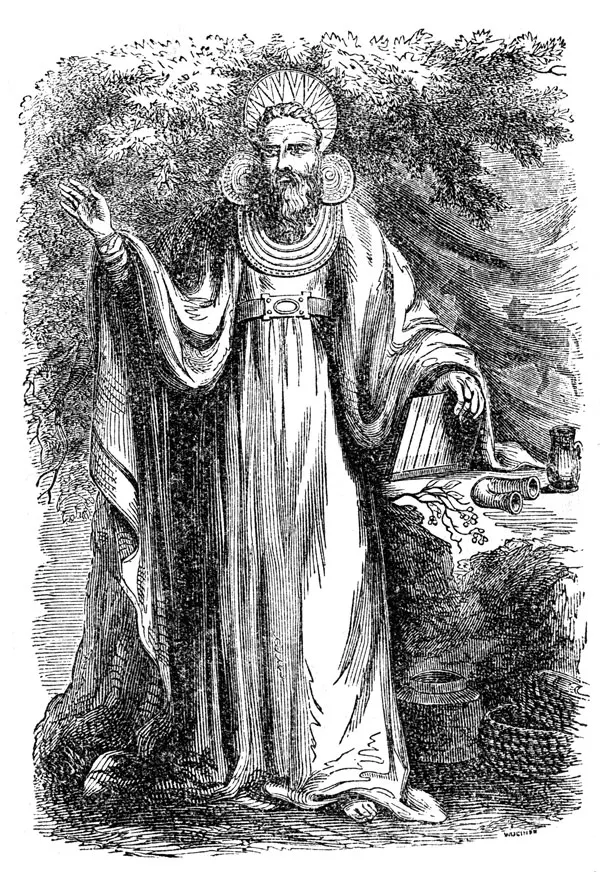 |
| "Three Goddesses, Roman high relief sculpture" (Corinium Museum, Cirencester) by Tony Grist - Photographer's own files. Licensed under Public domain via Wikimedia Commons. |
As I said in a previous blog, we've just had a very pleasant mini-break in Gloucestershire and Wiltshire during which we spent a few hours in the old Roman town of Cirencester, which, 2000 years ago was a thriving, bustling Romano-British community called Corinium, surrounded by and more-or-less peacefully co-existing with the indigenous Dubonnii tribe of native Britons.
These native Britons were supposedly Celtic people, though I personally find the arguments for that less than convincing (but that's another story). They, like the Romans, and like the Anglo-Saxons did later, had replaced earlier migrants to the British Isles comming possibly from Western Iberia and the Pyrenees.
Like the native Britons, whether the later 'Celtic' people or their predecessors, the Romans were religious people who saw evidence for their gods all around them and gave thanks at every opportunity, believing their gods required fulsome praise and answered prayers in one of three way, just as Christians, Muslims, Jews, Shintoists, Hindus, Sikhs, and just about every sect, ancient or modern, believed their god(s) answered prayers:
- Yes. The request is granted - the requested thing happens.
- No. The prayer isn't granted - the requested thing doesn't happen.
- Wait. The prayer isn't granted (but might be at some point in the future).
In other words, the effect of prayer to gods, then as now, would have been indistinguishable from the effect of prayer to a rock or a jar of peanut butter. And then, just as now, people would have rationalised the result in ways which confirmed their gods' existence rather than cast doubt on them. The human propensity to look for confirmation of bias would have been no less then than it is now and would doubtless have been exploited by the priest class then as now too.
 |
| Fanciful depiction of a Druid |
It seems that human blood sacrifice may have been involved as the best way to satiate and mollify their gods, with human body parts hung around woodland groves, much as Christians today believe a blood sacrifice of a human satiated their god's anger so that it forgave them for some imagined wrong done many generations earlier and little depictions of a dead god nailed to a post wards off evil spirits and performs protective magic. Also like early Christians, they probably believed animal sacrifices and burned offerings were also required especially to ensure a good harvest and maybe to ensure Earth kept turning so day followed night.
The reason we know little of their gods or details of their religious beliefs is of course, that there is no substantive basis for any of it. There is nothing we can look at and use to reconstruct their chain of reasoning that led to belief in particular gods with particular qualities and characteristics and reasons why they needed to be praised and/or mollified. Just like all religions, their beliefs were based on myths, non sequiturs, circular reasoning and gap-filling with easy answers.
 |
| Roman Empire in 117 CE. |
What more evidence was required that their gods existed? Who could seriously doubt the existence of Janus, Jupiter, Mars, Neptune, Apollo, Vulcan, etc, etc. Hadn't they answered their prayers with 'Yes!', 'No!' or 'Wait!'? And who in his right mind could doubt the evidence that was 'all around' that these gods existed and were actively involved in the affairs of the world?
And of course this 'proven' approval of the gods fully justified their conquest of lesser peoples with wrong religions and the imposition of a 'superior', god-approved Roman culture on these people who knew no better.
And yet where are these old Roman gods today? What changed to make them disappear without trace? The 'proof' the Romans would have used is still there. Rome certainly did have astonishing success militaristically and culturally. The seasons come and go, the rains come and go, the same prayers are still 'answered' with 'Yes!', 'No!' or 'Wait!' and yet the gods that caused these things are consigned to the graveyards of the gods and mourned by no-one.
What changed is that a new, less tolerant and more aggressive religion became more fashionable and was imposed by the state in a desperate attempt to shore up a failing Empire and recover it from the 'barbarian' hordes pouring in from the north who doubtless assumed it was their now dead and gone gods who were ensuring their victory over the hated enemy to the south with their unjustified arrogance and assumptions of god-given rights over others. The old gods disappeared because, like all gods, they only ever existed in the minds of their believers.
And the evidence for the Christian, Muslim, Jewish, Shintoist, Hindu or Sikh gods is exactly the same and based on nothing more substantial that circular reasoning, non sequiturs and gap-filling with easy answers. When these gods are dead and gone no-one will mourn them and no-one will be able to reconstruct their religions from anything substantive because there is nothing and there never has been.
And the same god-approved arrogance excuses the same god-approved imposition of a god-approved superior culture on lesser people who know no better. And these gods too exist only in the minds of those who require their gods' approval to excuse their arrogance.

No comments:
Post a Comment
Obscene, threatening or obnoxious messages, preaching, abuse and spam will be removed, as will anything by known Internet trolls and stalkers, by known sock-puppet accounts and anything not connected with the post,
A claim made without evidence can be dismissed without evidence. Remember: your opinion is not an established fact unless corroborated.